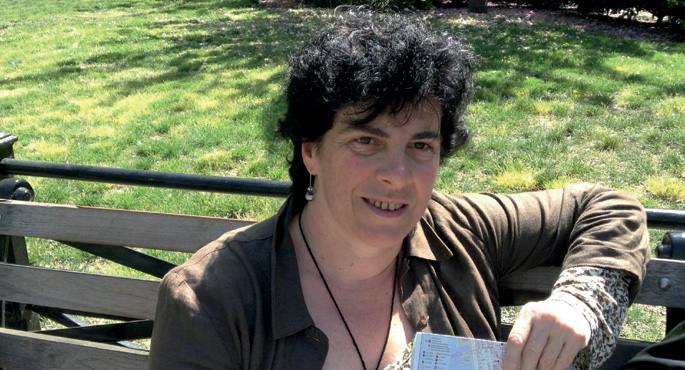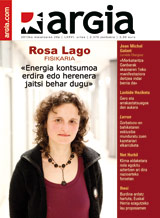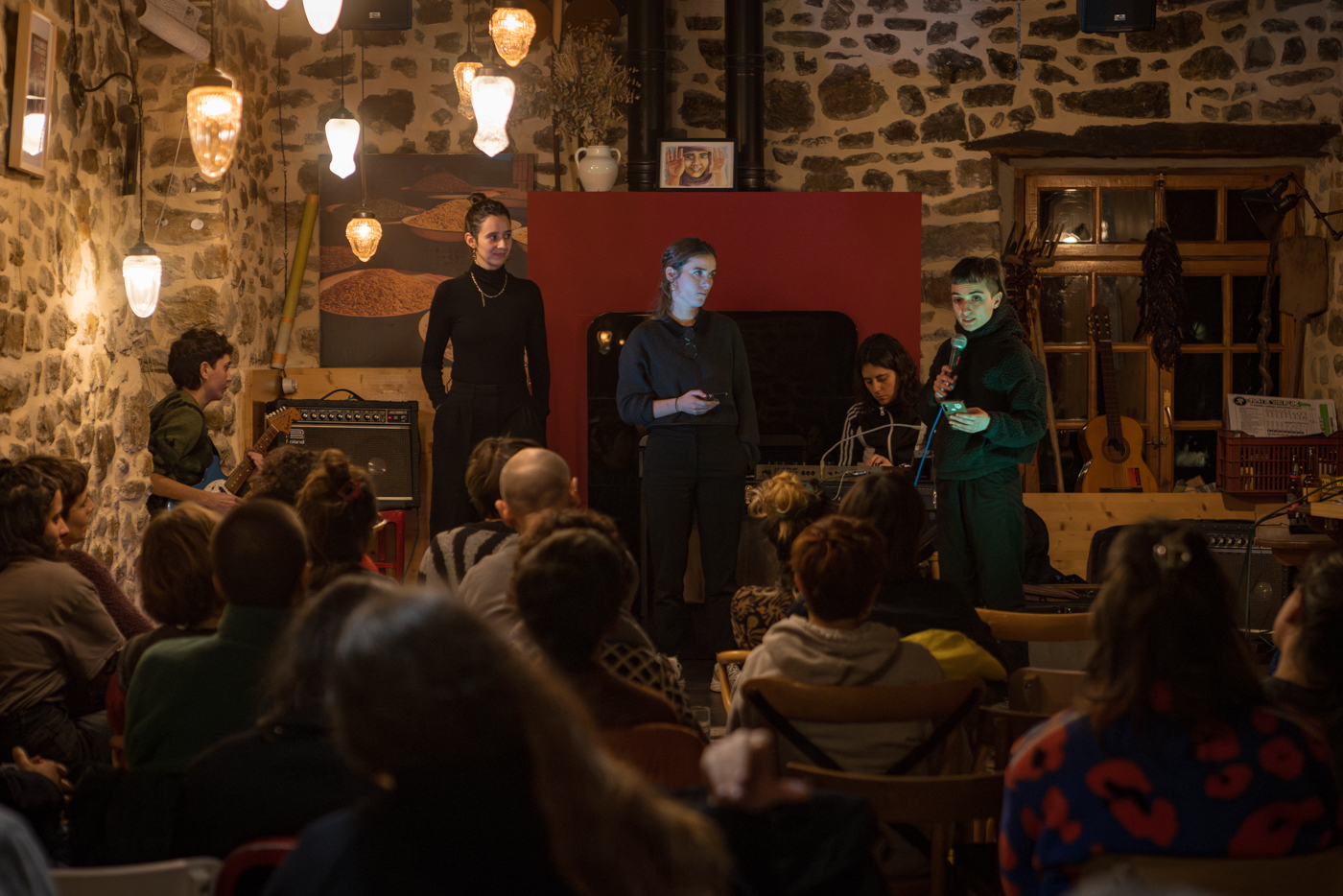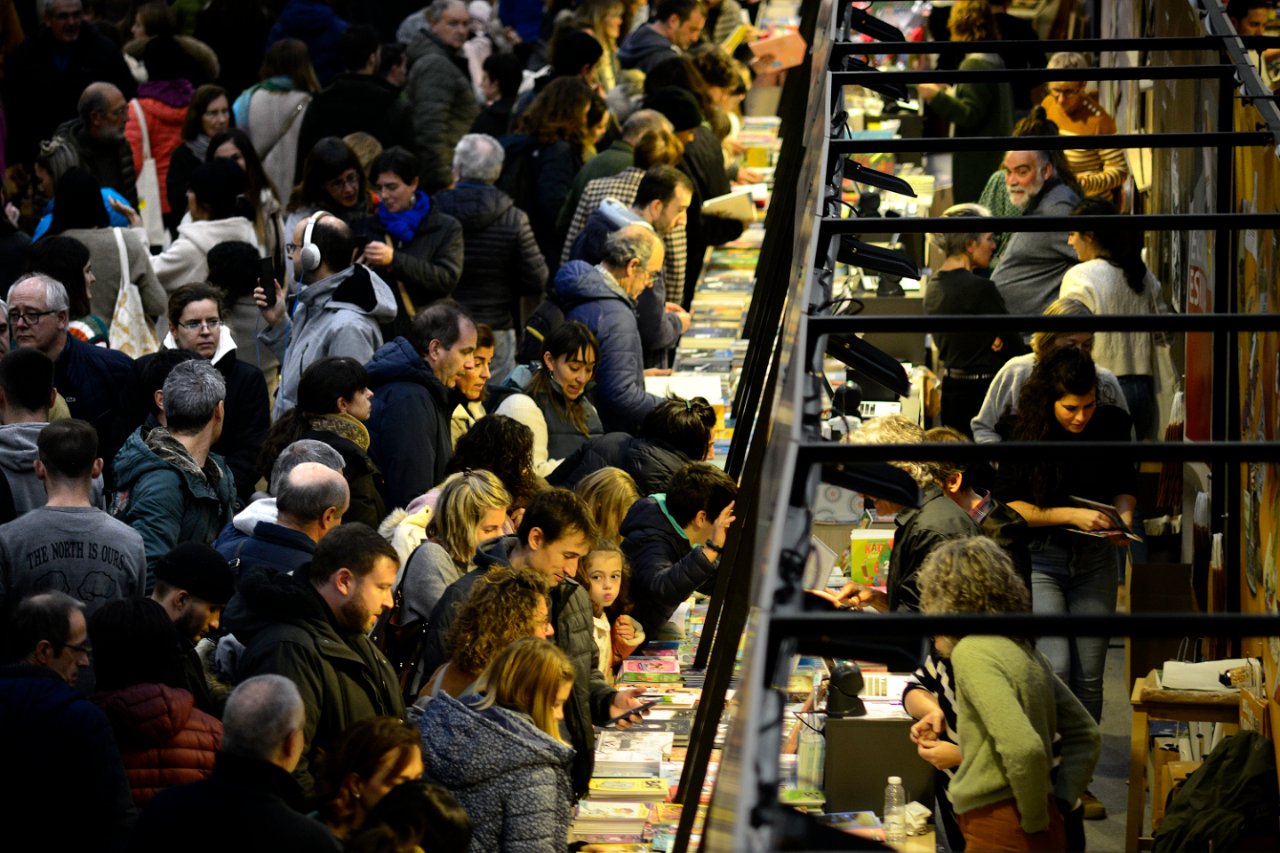In New York, between poets
- The Pen World Voices Festival has been held annually in New York City since 2005. It has a duration of one week and is customary to invite writers from other territories. This year, Tere Irastortza has been charged with reciting at New York University. On May 3, Catalan writer Melcon Mateu and Quechua writer Odi Gonzales accompanied him on the journey. He has told us a few words about the objectives he has been led to and about what he has lived there.

Will these invitations not be received every day?
The organizers knew the Catalan poet and the Quechua, as they both work in the country’s universities, as well as Lila Zemborain and Mariela Dreyfus, who have organised this session. They didn't know me directly, but they had references to my poetry, and in that sense I've been very happy to have received this invitation through New York University.
Apart from the undisputed honor for oneself, there are other reasons that I cannot omit. The two program organizers are members of the Creative Literature Department at New York University, and like us here at Bergara School of Writers, they also do a two-year master's degree there. Therefore, in that sense, when I went there, I had that interest in the background; although I was at the European Creative Writing Association of the Bergara School of Writers, there are usually very few courses taught in the classroom during two courses.
And do you know the poetry here?
The organizers do not know the Basque literature well, but in general they are very experts in literature and poetry, and the two great poets, who also work in the essay, etc. In this sense, it has been a special knowledge for each other. I didn't feel like a poet in New York, but a poet in New York.
On the other hand, the Pen Club has a programme of linguistic rights and therefore with interest, which was appreciated in the framework of this great festival. But what I would say is that for many of the attendees it was very novel to listen to Basque poetry.
And now I know (Pamiela, 2011), above all, the poems of your last book.
Sarah Trutle translated some poems from my last two books before I came, but I'd already translated others from Iñaki Mendiguren, and in the end I did a little anthology of my last three books.
With the poems I had in Spanish and English I made an album of these characteristics and I completed it with a quick impression made in the delegation of the Basque Government, especially so that the attendees could have a little reference. This was not done by the other poets. They're now available on my website.
On the other hand, I also took the music of Aitor Furundarena for my last book and the album I published with Iñaki Telleria and GARIKOITZ Mendizabal, but due to organizational problems, it was not heard as I had it prepared. However, in the end I also shared those music CDs. I also found it interesting to leave other references of the Basque culture.
And finally, I was also in contact with the Ketxu de Poetas, in addition to literature, we also talk about the processes of normalization of our languages, and as I also live close to the processes of creation and development of a ikastola, we also talk about the organization of the social initiative in Euskal Herria.
And what was the reception of the program?
Our reading was done in the final straight of the festival. It was very interesting, I also attended a session the day before, but I was a little bit stuck translating my texts at the last moment, and in that sense, I didn't enjoy the others so much.
I was very well received, both by the members of the delegation of the Basque Government before the event and by the organizers and Basques of it. But I would like to stress that the atmosphere and complicity that arose after reading seemed to me to be very rich. Before I finished the festival, I was approached by a lot of people, talking about poetry as well as Euskera. I have had little time to respond to the invitations I received in the following days.
As I told you, Catalan writer Melcon Mateu and writer Ketxu Odi Gonzales accompanied you. Did you know them or did you know them there?
No, I didn't know them before coming, but they do a very interesting poetry and very accessible to us. We have a relationship path to the next, among other things, through our poetry.
New York has been a source of inspiration for many artists. Will you leave any trace of this journey in one of your writings, in a poem?
New York has also been a source of inspiration where I loved many places before I left, because other writers have taught me ...
I was in New York for the first time and it is still too early to say what effect it will have, if the city will be affected by the time I used in meditation, if the new books I entered the site that left the bags or tied to the track of the acquaintances...
And yes, I've also written something while I was there, but the script still requires a slower time. During my stay, I have mainly dedicated myself to translating some of my poems into Spanish and to directing and reading other works of mine. And I've been attentive, as always as I can, to knowing what to study and deciding what remains to be done.
Joan Tartas (Sohüta, 1610 - date of unknown death) is not one of the most famous writers in the history of our letters and yet we discover good things in this “mendre piece” whose title, let us admit it from the beginning, is probably not the most commercial of the titles... [+]

















ilbeltza-(1).jpg)




